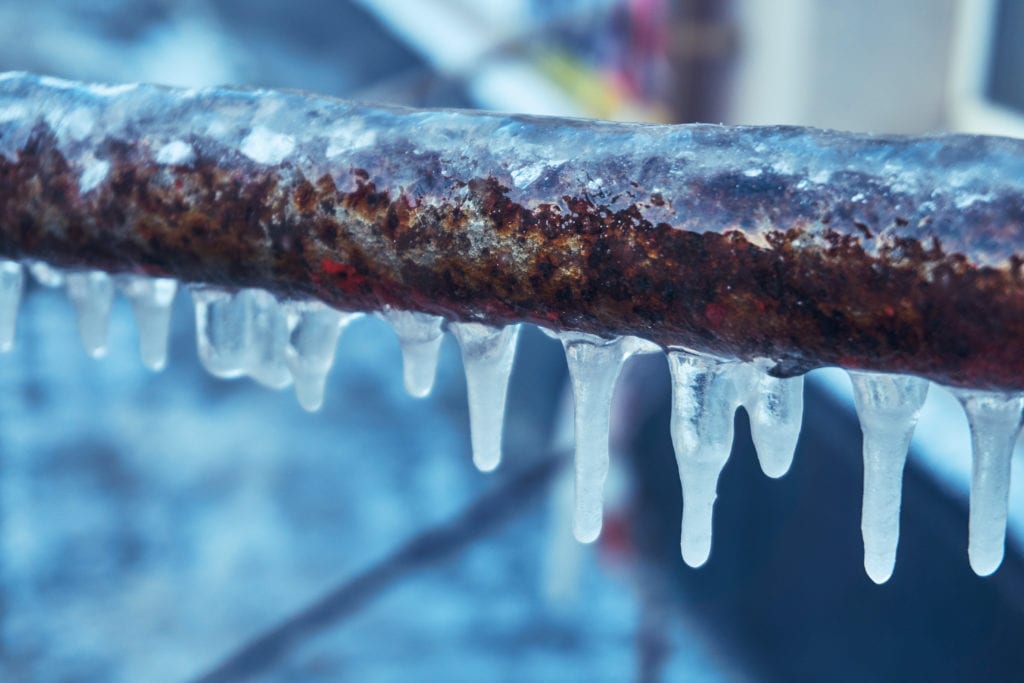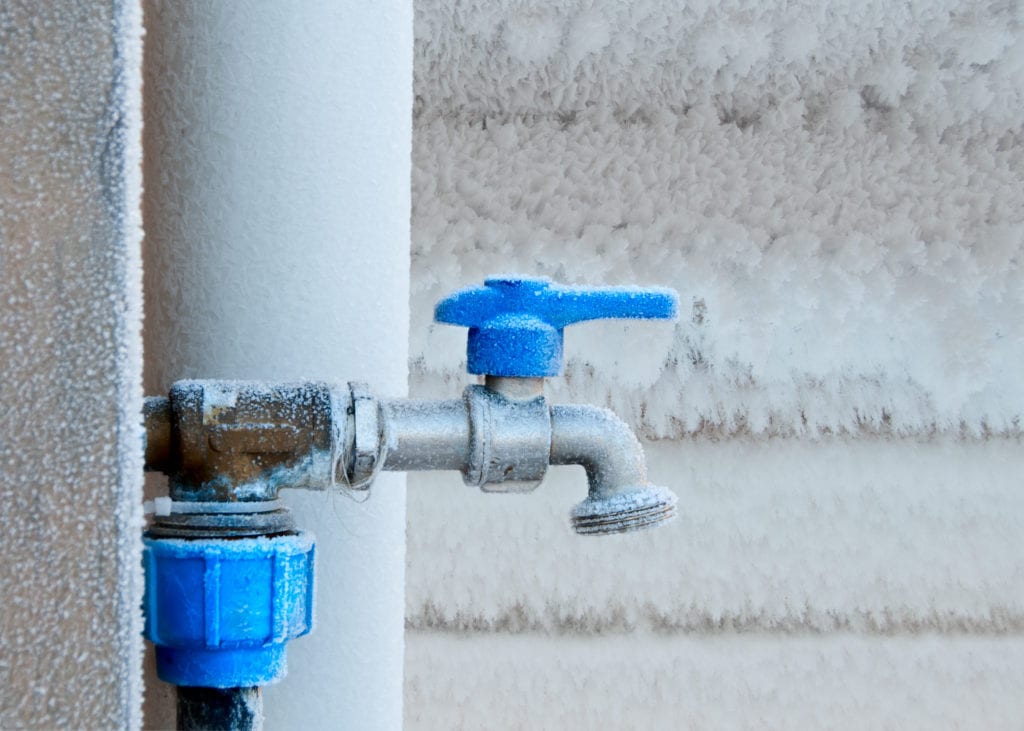
Many small icicles have frozen on a rusty pipe in the street in the winter
When it comes to changing seasons, wintertime has to require the highest maintenance costs. To be fair, wintertime can be fun, but it can also be quite troublesome. There are all kinds of pre-winter preparation, chores that you have to do during winter, and repairs that need to be done after winter. And the repairs are especially inconvenient because you have to wait until the season ends to fix them. This means that you might have to wait for weeks or months before you can deal with it.
Because of this, people have become extra careful about how they prepare their homes for winter. Without these preparations, you could suffer from the bitter cold and be left with many repairs and expenses after. One of the most vulnerable parts of your home during winter is your piping. They could freeze and then burst due to the pressure from the ice blockage. Any good plumber will tell you that preparing your pipelines before wintertime comes should be your top priority.
However, you might be confused about what you should do to prevent your pipes from freezing temperatures. There are many pipes inside and outside your home, and it can be tough to winterproof them if you don’t know where to start. There are other ways to keep all your pipes from freezing, which you can read about if you take a look at the site here. To make it easier for you, keep the following tips in mind:
- Use Electrical Heating Tape
Electrical heating tape is an excellent way to keep your pipes from freezing. But remember that you can only do this for exposed pipes. If you tend to forget to plug in heating tape, you should opt for the self-monitoring ones. However, you can’t use this method for the pipes inside your walls or underneath your floors. Furthermore, it can be dangerous to use heating tape, so make sure that you read and understand the instructions.
- Insulate Your Pipes
Before the winter rolls in, one thing you need to do is to insulate your pipes. But you won’t need to insulate all the pipes in your home; just pay attention to the areas that get cold. These areas usually include the basement, the garage, and the attic. It’s better to insulate before winter comes instead of dealing with any burst pipes afterward because it costs more to do the repairs. There are different pipe insulation materials that you can choose from, such as foam, fiberglass, or polyethylene.
- Inspect Your Pipes
Just like how a home inspection is essential before buying a house, preparing your home for winter requires doing a careful inspection. And you should be just as thorough, because this will provide you with the opportunity to get repairs done before the temperature drops. Timing is essential since some repairs and plumbing projects can’t be done during the winter. So make sure that you call in your trusted plumbing service provider to help you prepare. You can even ask them for specific tips that your home needs to get your piping ready for wintertime.
- Seal Any Cracks And Holes
Cold air can pass through any cracks and holes in your walls, roof, windows, and doors. This cold air can disrupt the heating in your home, and it can cause pipes to freeze. To avoid this problem, make sure to check every part of your home so you can seal them just in time.
- Seal Crawl Spaces
Winter can make crawl spaces frigid, and any pipes in or around this area will undoubtedly freeze. To keep this from happening, you’ll need to insulate and seal it with foam and duct tape. Also, for emphasis, make sure to check and seal any cracks or holes in the crawlspace where cold air can pass through.

Frozen faucet in winter
- Insulate Your Home
Insulating your home will help your family feel warm and comfortable, but it also helps your pipes from freezing. Insulating your home can be a big project, so be sure to do it long before winter comes. But if you already have insulation, you’ll need to inspect it and do any repairs or maintenance to make sure it keeps your home warm throughout the winter.
- Let All Faucets Drip
Another tip is to let your faucets drip so the water inside your pipes can flow. As you may already know, moving water is less likely to freeze. If you shut your pipes, you’re stopping the movement and causing the freezing process in your pipes to quicken. You don’t need to leave it completely open though, just open it very slightly so that it drips.
Conclusion
There are many ways to prepare your home for winter. With the essential role of plumbing in every house, pay special attention to prevent your pipes from freezing. If you feel like your piping isn’t in the suitable condition to make it through freezing temperatures, you should call in a plumber to check it out for you. Either way, it’s better to be prepared for the winter so you won’t have to deal with issues once the ice thaws.

